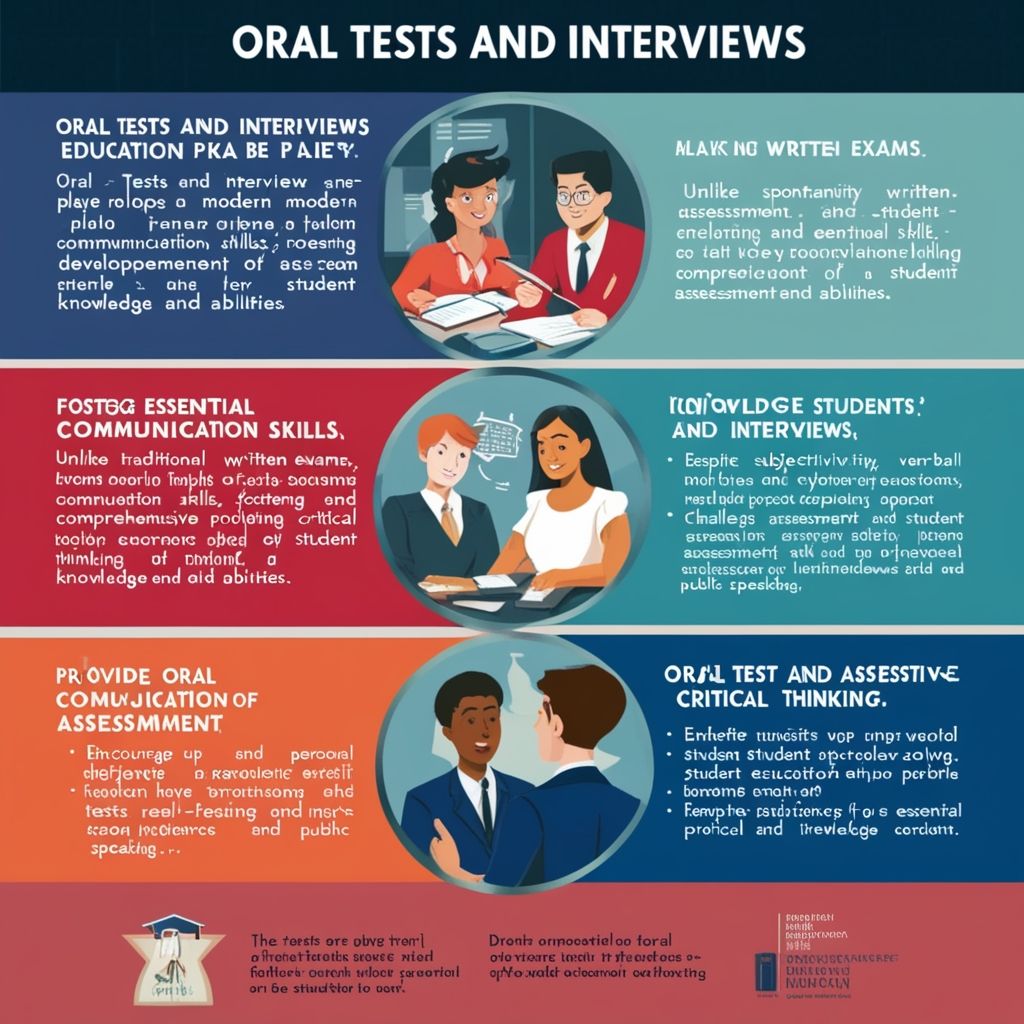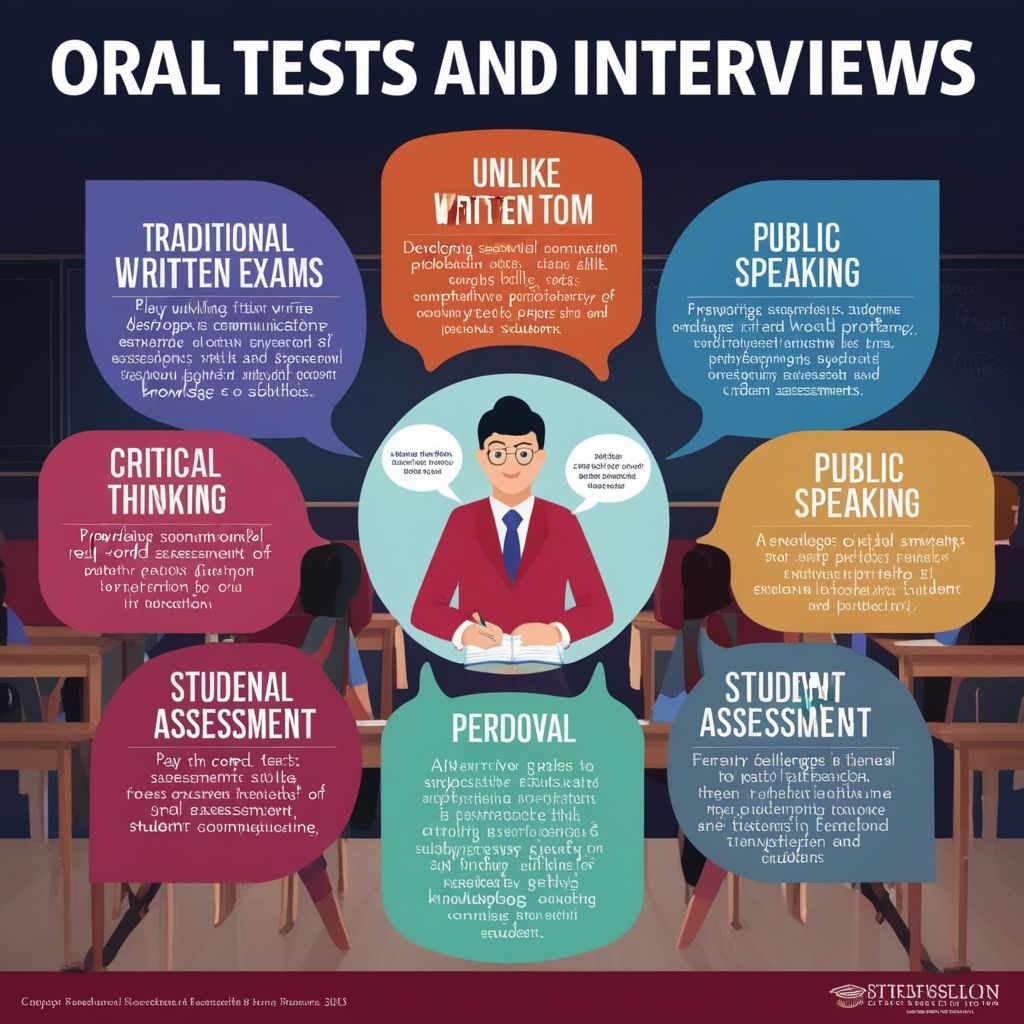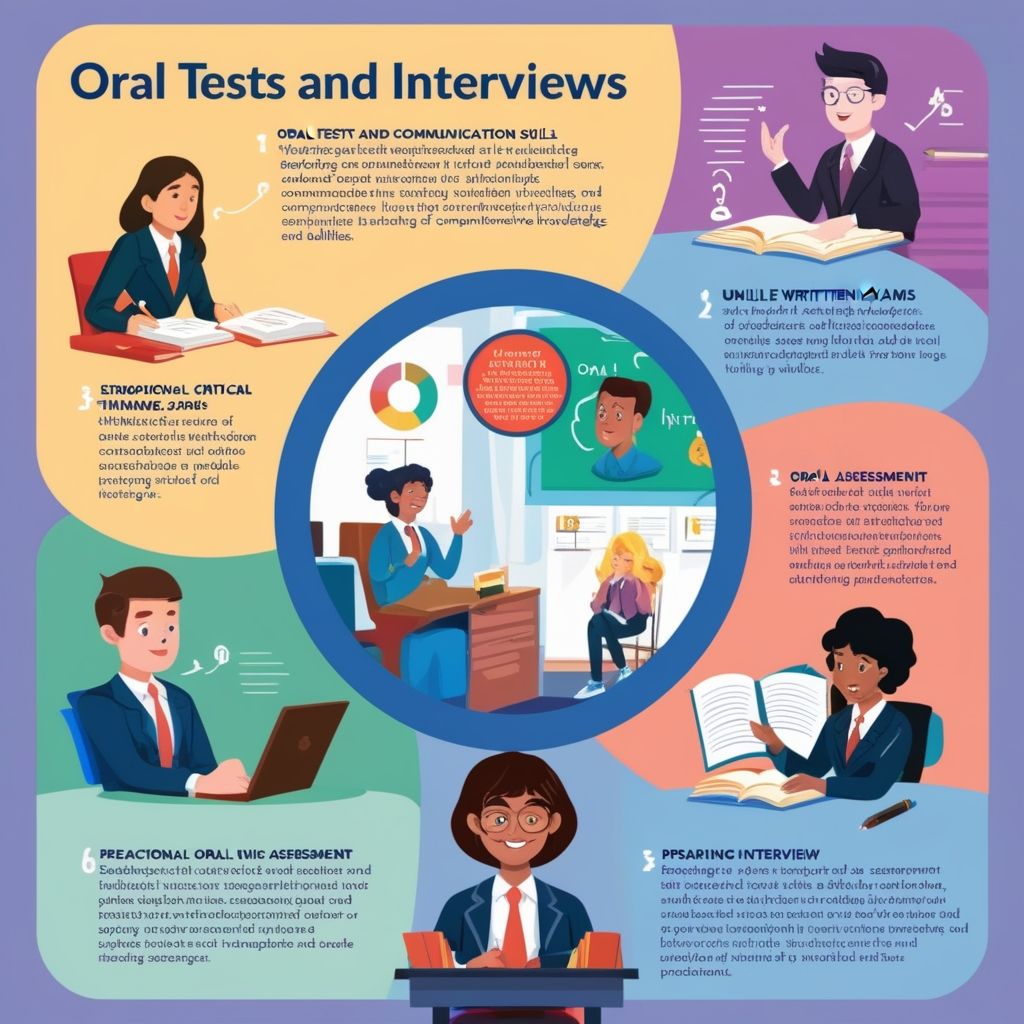Introduction
The importance of oral tests and interviews in education, Assessment is a cornerstone of the educational system, serving to measure students’ understanding, skills, and competencies. While written exams have long been the standard method, oral tests and interviews are gaining recognition for their unique benefits. These methods not only evaluate knowledge but also foster essential life skills, making them invaluable in modern education.
Historical Perspective
Oral examinations date back to ancient times when scholars and apprentices were assessed through verbal questioning. This method allowed for a dynamic exchange of ideas and immediate feedback. However, with the advent of standardized education systems, written exams became predominant due to their scalability and objectivity. Despite this shift, oral assessments have persisted in various forms, particularly in fields requiring strong communication skills.
Benefits of Oral Tests and Interviews
- Development of Communication Skills: Oral tests and interviews compel students to articulate their thoughts clearly and confidently. This practice is crucial in developing strong verbal communication skills, which are essential in both academic and professional settings. Through regular practice, students become adept at organizing their thoughts and presenting them coherently.
- Critical Thinking and Spontaneity: Unlike written exams, which allow time for reflection, oral assessments require immediate responses. This spontaneity encourages critical thinking and the ability to articulate thoughts on the spot. It pushes students to engage deeply with the material and develop a robust understanding.
- Comprehensive Assessment: Oral tests offer a holistic approach to evaluation. They allow educators to assess not only the students’ knowledge but also their ability to explain concepts, argue points, and handle questions. This method provides a more nuanced understanding of a student’s capabilities.
- Personal Interaction: One of the key advantages of oral assessments is the opportunity for personal interaction. Teachers can give instant feedback, clarify misunderstandings, and offer encouragement. This interaction fosters a supportive learning environment and helps build student confidence.
- Real-world Preparation: Oral tests and interviews closely mimic real-life situations such as job interviews, presentations, and group discussions. By familiarizing students with these formats, education systems prepare them for the demands of the professional world. This real-world relevance enhances the practicality of the learning experience.

Challenges and Solutions
- Subjectivity in Evaluation: One of the primary concerns with oral assessments is the potential for subjectivity and bias. To mitigate this, it is essential to establish clear, standardized criteria for evaluation. Rubrics detailing specific performance indicators can help ensure fairness and consistency.
- Student Anxiety: Speaking in front of others can be intimidating, leading to anxiety that affects performance. Educators can address this by creating a supportive environment, offering practice sessions, and providing constructive feedback. Gradual exposure to oral assessments can also help students build confidence over time.
- Logistical Issues: Conducting oral tests can be time-consuming and resource-intensive. Schools and institutions can manage this by integrating oral assessments into regular class activities, using peer assessments, and leveraging technology for virtual interviews and presentations.
Implementation in Different Educational Stages
- Primary and Secondary Education: At these levels, oral assessments can be introduced through activities such as show-and-tell, group discussions, and oral presentations. These activities are age-appropriate and help in building foundational communication skills.
- Higher Education: In universities and colleges, oral exams and interviews are particularly valuable in courses that require deep understanding and articulation of complex concepts. They are often used in humanities, law, and medical fields where verbal reasoning and communication are crucial.
- Vocational and Technical Training: Oral assessments are indispensable in vocational education, where practical skills and the ability to explain processes are vital. For instance, in fields like nursing, engineering, and culinary arts, students must demonstrate both knowledge and practical competence.

Case Studies and Research Findings
Several educational institutions have successfully integrated oral assessments into their curriculum. For example, the University of Cambridge has long employed oral exams (vivas) for its final-year students, finding that these assessments provide a rigorous evaluation of student understanding and communication skills. Research has shown that students who undergo regular oral assessments tend to perform better in public speaking and are more confident in their professional lives.
Future Trends
The future of oral assessments is likely to be shaped by technological advancements. Virtual interviews and online oral exams are becoming increasingly common, offering flexibility and accessibility. Additionally, there is a growing recognition of the need for diverse assessment methods that cater to different learning styles and competencies.
Conclusion
Oral tests and interviews are indispensable tools in the educational landscape. They foster essential skills such as communication, critical thinking, and confidence, preparing students for real-world challenges. As education continues to evolve, it is crucial for educators to embrace these methods, ensuring a comprehensive and practical learning experience for all students. By integrating oral assessments, we can create a more dynamic and effective educational system that truly prepares students for the future.

nw6qco
v97xla
6mjfn8
msfpor
An interesting dialogue is worth comment. I believe that you should write extra on this topic, it may not be a taboo topic however usually individuals are not enough to talk on such topics. To the next. Cheers
pxtr9l
Togel Terpercaya : Daftar Togel Online yang Aman dan Terpercaya
Hello there, just became aware of your blog through Google, and found that it is really informative. I am going to watch out for brussels. I’ll be grateful if you continue this in future. Many people will be benefited from your writing. Cheers!
Make mornings more adorable with this Hello Kitty alarm clock CD player. Ideal for kids and collectors alike, this charming CD clock radio includes all the basics: AM/FM radio, programmable CD playback, and reliable alarm settings. Wake up to your favorite CD or a cheerful radio station with built-in stereo sound. A large digital display and simple controls make it easy to use, even for younger users. Combining cuteness with functionality, it’s a top pick among themed alarm clocks with CD players that bring fun and joy to your space.
Its like you learn my mind! You appear to understand a lot about this, such as you wrote the e book in it or something. I believe that you simply could do with a few to force the message house a bit, however other than that, that is excellent blog. A fantastic read. I’ll definitely be back.
This is a very good tips especially to those new to blogosphere, brief and accurate information… Thanks for sharing this one. A must read article.
I think this is one of the such a lot significant information for me. And i am glad studying your article. However wanna commentary on some normal things, The website taste is perfect, the articles is truly nice : D. Excellent process, cheers
I read this paragraph completely about the resemblance of most up-to-date
and previous technologies, it’s remarkable article.